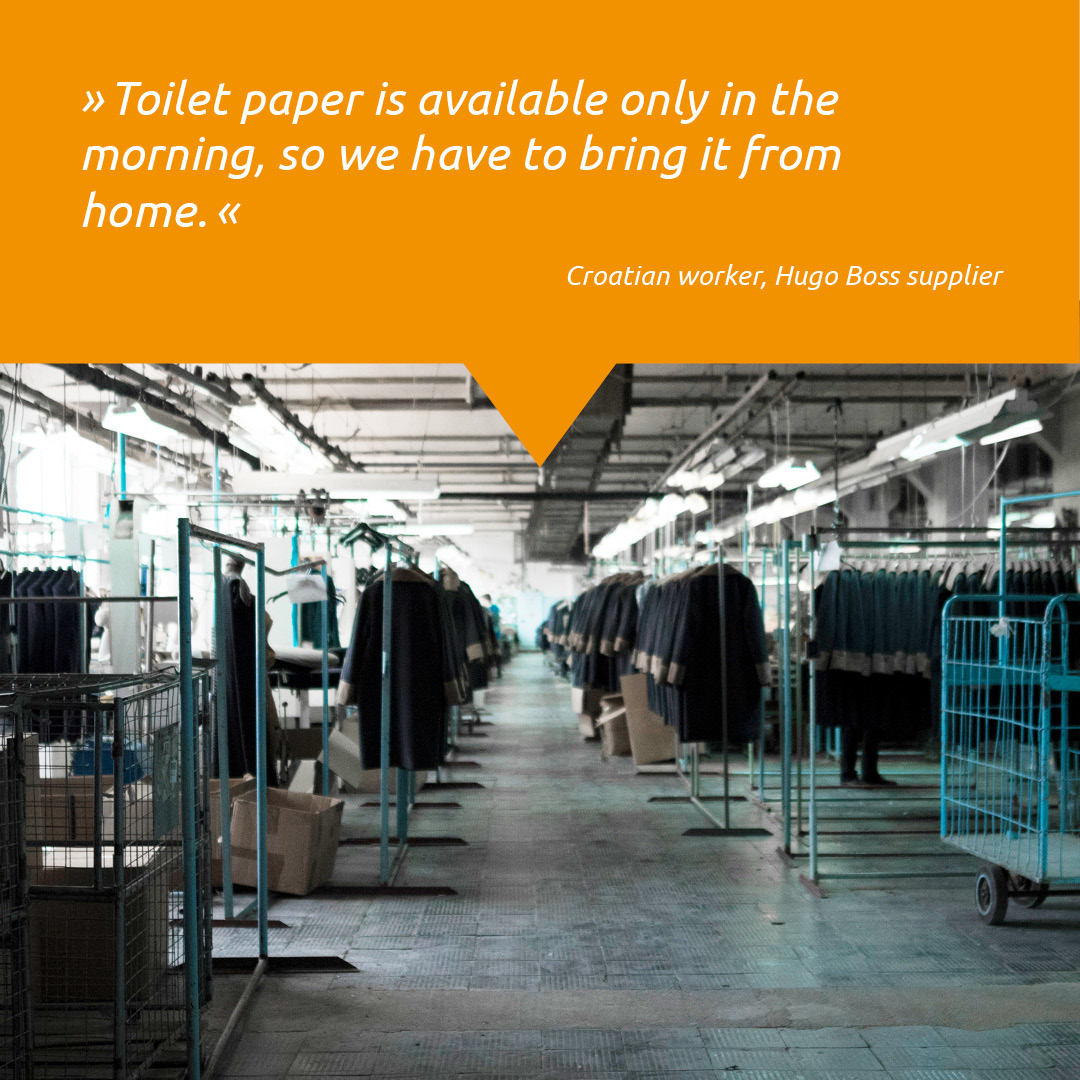
German brands' practices force European garment factories to risk workers' lives amidst a pandemic
A shocking investigation from Clean Clothes Campaign and Germany based Bread for the World reveals that around 120,000 labourers across Europe are being forced to work in high risk environments in spite of workplace closures globally.
There is still no European legislation to enforce brands and retailers respect human rights throughout supply chains and ban unfair and inhumane trading practices.
In Serbia, Ukraine, Croatia and Bulgaria, employees are still working for far less than a living wage for German fashion brands including Hugo Boss, Gerry Weber, Esprit, as well as German supermarket and drugstore chains. In spite of the current pandemic, factory managers continue to force workers to report to work despite the high risk of infection of Covid-19 and in contravention of international guidelines.
Bettina Musiolek from the Clean Clothes Campaign (CCC), said: “Hugo Boss always refers to its Corporate Health Award but at its Croatian supplier’s bathrooms there was not even sufficient toilet paper and soap until January. The crisis hits fashion retailers hard but the last in the chain, the workers, have to bear the biggest burden. I have not heard anything from Hugo Boss, Esprit or Gerry Weber on how they intend to ease this burden. Many think of this as a problem confined to Asia but these developing world conditions are rife across Europe too.”
Those who report sick have to face tough reprisals. A Croatian tailor in a Hugo Boss supplier explained: “If you’re sick, you’d better kill yourself. You cannot afford sick leave."
Wages of garment workers remain extremely low in the Eastern and South Eastern Europe manufacturing industries. A Ukrainian tailor will earn around 126 Euro per month, leaving no room to save money for contingencies such as the current Covid-19 crisis. “In order to make ends meet, these workers would have to earn three to five times what they earn now”, says Musiolek. This is not happening because brands like Hugo Boss, Esprit or Gerry Weber purchase their clothes from suppliers at very low prices – between less than 1% to around max. 5% of the high street retail price.
Currently, even this meagre wage is not paid because apparel companies in Germany are cancelling orders and factories close -- not for the protection of workers, but because there is no work. Employees reported to Clean Clothes Campaign that they are now forced to go on unpaid leave, leaving many already on the poverty line in even more dire circumstances.
“The massive human rights abuses show that voluntary initiatives of brands and retailers are failing, with no real change in the last two decades, in spite of calls for action”, says Musiolek. "National and international human rights and workers rights laws continue to be flouted, even by member states of the EU. Governments and the European Union must adopt appropriate legislation for brands and retailers to implement human rights in their global supply chains. Until there is a strategic means of tackling this issue, there will be tens of thousands suffering in global brands' supply chains.”
Clean Clothes Campaign urges brands like Esprit, Gerry Weber and Hugo Boss to engage with suppliers. “This means concretely that finished or in-production orders must not be cancelled and are paid fully and on time”, says Musiolek. “The brands must take a stand and support suppliers to make sure that workers have safe workplaces and transport including safe distancing between employees and the provision of protective equipment which workers’ reports reveal is not the case. This is a matter of urgent need.”
Read the full report here.